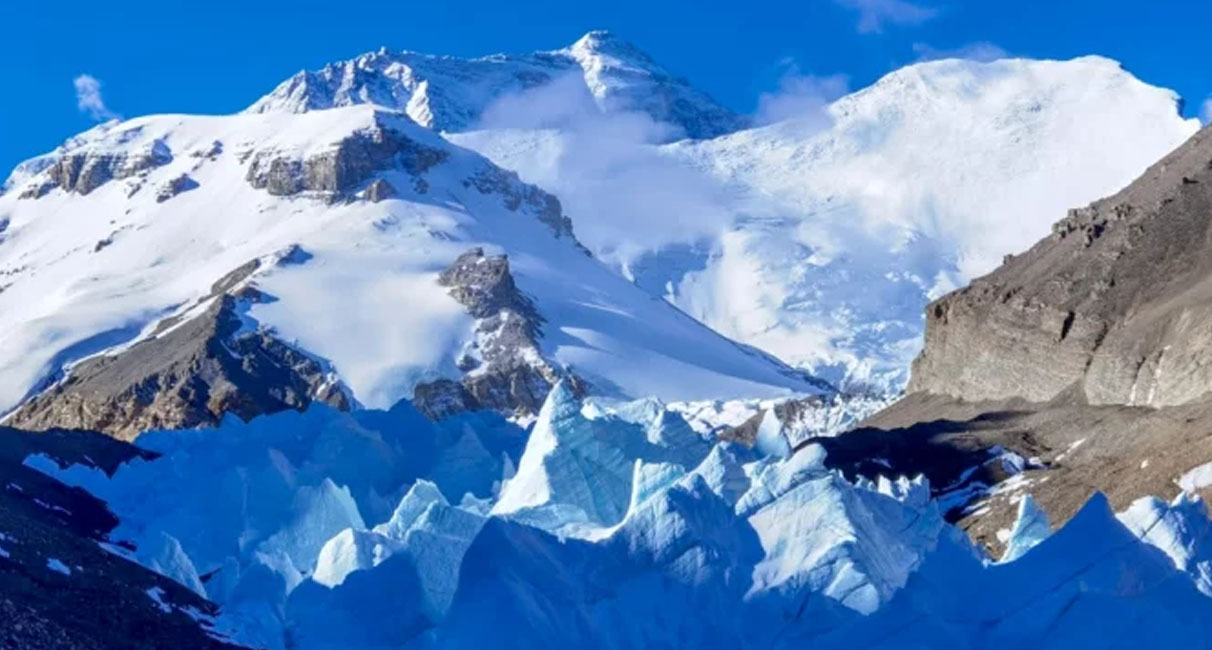China has sent more than 1 million bottles of Himalayan ice melt water to the Maldives. This is a gift from the area of the world’s highest mountains to a country threatened by rising sea levels. Maldives authorities confirmed this information last Thursday.
Made up of 192 small atolls in the Indian Ocean, the Maldives is at the forefront of climate crisis countries. Where salt seeps into the earth’s crust and contaminates drinking water. As a result, water is being desalinated and made suitable for drinking through desalination plants.
Scientists say that due to climate change, Himalayan glaciers are melting faster than before. According to the Ministry of Foreign Affairs of the Maldives, the gift came from Yan Xinhai, chairman of the Jizang Autonomous Region of Tibet.
This information is known in a report by the Hong Kong Free Press.
These bottles, filled with 90 containers, arrived in the country last week. An official of the Maldives Port Authority confirmed this information.
“Jizhang Region Chairman Yan Jinhai expressed his desire to send 1,500 tons of drinking water during his official visit in November last year. The Ministry of Foreign Affairs of the Maldives said this in a notification.
Meanwhile, the Ministry of Foreign Affairs has rejected the news circulating on social media that this water was sent to drink by pro-Chinese President Mohammad Muijju, who came to power last year from an anti-India position.
“The Maldives government has decided to use this water to provide assistance to the islands in case of a water shortage,” said the notification.
The United Nations Intergovernmental Panel on Climate Change (IPCC) warned in 2007 that the Maldives would become virtually uninhabitable by the end of this century if sea level rose by 18 to 59 centimeters (7.2 to 23.2 in).
Muizzou has promised to tackle the situation with ambitious land reclamation plans and the construction of elevated islands. Note that 80 percent of the island nation is less than one meter (three feet) above sea level.
Malé, the capital of the Maldives, has already run out of potable groundwater. Local people have to rely on expensive desalination plants to supply water.
Note that in December 2014, a fire at a water desalination plant in Male disrupted water supply for about a week. Both India and its regional rival China have shipped drinking water until the plants are fixed.
The Maldives is known for its white-sand beaches and luxury tourism. Meanwhile, the country’s watershed is also important to control the strategically important east-west international shipping routes.
While New Delhi is comfortable considering the archipelago in the Indian Ocean as part of its sphere of influence, the Maldives is leaning towards China. China is also the country’s biggest creditor.
Muijzu visited Beijing in January. He then signed several agreements on infrastructure, energy, maritime, and agriculture. Meanwhile, India has started withdrawing its troops from the Maldives this month.
China sent Himalayan melt water to Maldives





